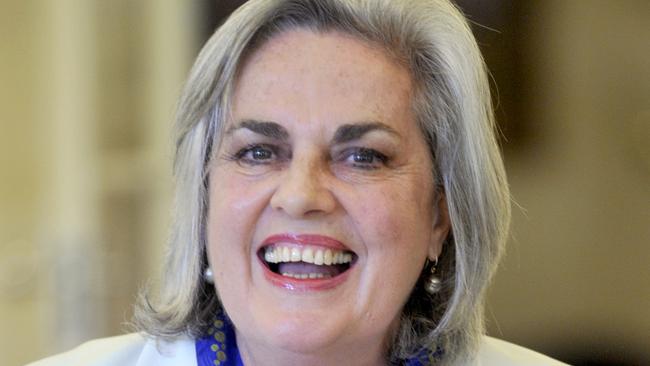Plans to bring defined benefit pensions into new super tax net are unfair to women, says former High Court judge


As Treasury faces major pressure from the top end of town against the new tax, former High Court Justice Susan Crennan AC KC has now entered the debate suggesting the plan will impose higher tax on females than males in similar circumstances.
Crennan, who has returned to legal practice after retiring as a justice of the High Court, has introduced another headache as the government tried to push through a plan to introduce a new 15 per cent tax on super earnings for balances above $3m.
In order to bring defined benefit (DB) pensions into the new super tax net, the government has to find a formula which creates an equivalent tax regime to those with conventional superannuation savings.
The current proposal is to apply calculations on the value of a DB pension already used in family law when DB pensions are included in divorce settlements.
But, the kickback from stakeholders in defined benefit pensions is mounting. John Pauley of the ACPSRO — Australian Council of Public Sector Retiree Organisations — recently told The Australian: “We are sitting ducks here, we do not have the options to move money around — we are being treated as if defined benefits were some sort of gift, but we want to make it clear that we are taxpayers, and we never got the tax concessions of others in the system”.
Meanwhile, the Australian Judicial Officers Association has suggested the implications of a reduction in judicial pensions could “erode the perceived independence of the judiciary”.
But, Crennan has added a new — and potentially powerful — argument on the issue.
According to Crennan, “the practical upshot is that numerous women judges in the Commonwealth system have had unusually long careers of judicial service. On the actuarial assessments foreshadowed in the draft regulations, the cohort of women judges to which reference has been made will bear a higher Div 296 tax burden than male colleagues in similar circumstances.”
In essence, the discrimination argument points out DB pensions and their planned tax rates will be based on actuarial assessments which forecast women will live longer than men. Consequently, under the plan they will be paying more ongoing tax — whether they live to match the actuarial assumptions or not.
The argument has been echoed in a submission to the Senate from the accountants body, CAANZ. It suggests the plan based on pension capital values risks being discriminatory.
In its submission, CAANZ says: “It might be possible that two people — one female the other male — in very similar circumstances could have different tax obligations because of their respective genders — in such cases the female will pay more tax.”
Tony Negline, superannuation leader of CAANZ says: “The plan is unacceptable and it needs to be restructured.”
The sex discrimination argument adds to a string of arguments now accumulating over the tax, which is currently before parliament, the government is hoping can be effectively applied from the new financial year so it can be collected from the commencement date of July 2025.
Along with resistance from senior public servants, there are concerns across the professional services sector the new tax based on unrealised grains (or paper gains) will have a range of unintended consequences. There are also concerns with the lack of indexation relating to the $3m threshold following the latest rebound in inflation.
DB schemes were dropped in 2004 and are now mostly relevant to retired public servants or those close to retirement.
The pensions have become highly prized since the retiree gets a set payment due every year, regardless of the fortunes of investment markets.
The tax requirements on DB payments are complex. However, many former public servants are on capped DB incomes which are tax-free up to $118,750 per annum.
Crennan was not available to comment on the issue.




The government’s new super tax — as it applies to senior public servants on defined benefits — could be discriminatory against women, says a former High Court Justice.